Brand campaigns, when handled well, have the power to spark meaningful and much-needed conversations. One such campaign that captured my attention and tugged at my heartstrings is the ‘Chhota-Verse’ campaign by Urban Company (UC) and Talented.Agency. They released three beautiful ad films highlighting ‘Dignity of Labour.‘ Titled ‘Chhota Kaam’, ‘Chhoti Soch’, and ‘Chhoti Baat‘, these films compel you to think about the working-class biases existing in India.
The trio of commercials examine how the privileged class views blue-collar jobs and workers i.e. the UC professionals. Take a look at the 3 intriguing films:
Chhota Kaam
The first film in the series, ‘Chhota Kaam‘ showcases a little boy posing an innocent question that underlines a widely existing working-class bias. Work isn’t just work, it’s pride in a job well done. “Kaam ko bada, chhota ya medium, soch banati hai.“
Chhoti Soch
This film picks the bias a Massage Therapist goes through in society. What is really behind a woman professional’s success? The film delicately unpacks the stigma surrounding her profession, first for herself, and then for her family. ‘Chhoti Soch‘ also won ‘The Voice of Change Award‘ at IndIAA Awards 2024. “Auratein jitni aage badhti hai, logon ki soch utni hi chhoti hoti jaati hai…”
Chhoti Baat
The third film in the ‘Dignity of Labour’ highlights the plight of each worker. In the end, all he wants is respect for his labour. The ad reflects on what being a good manager means – both in the office and at home. All work, done with purpose, is worthy of dignity. “Bharosa nahi hai toh khud karlo. Sochne ki baat toh hai…”
Also Read: MakeMyTrip Collaborates With Hindi-Speaking Influencers To Lead Their New Overseas Travel Campaign
We spoke to the big brains behind this work of art. Let’s dive right in:
Highlighting ‘Dignity of Labour’
So far Urban Company has been creating ads that would tie back to the brand’s services. With ‘Chhota-Verse‘, the brand chose to speak up about an issue closer to home for them. ‘Dignity of Labour‘ is a very crucial topic of discussion, especially for a service-oriented platform like UC. What made them pick this insight over any other for this particular campaign?
Kartik Ahuja, Senior Brand Manager, Urban Company shared “After months of in-depth interviews with UC Professionals and customers, we realised that this perceptual problem is informed by a cultural view of ‘blue-collar’ workers being seen as less than and as a result, mistrusted. Thus, our objective from this workstream shifted from building safety & trust to disarming cultural biases that get in the way of ANTs and society at large,” he shared.
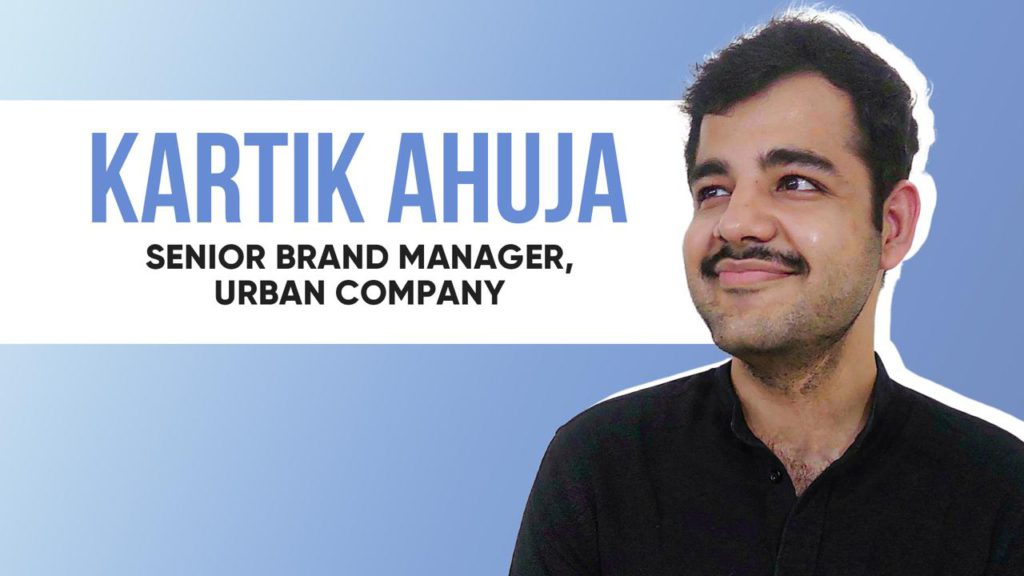
All three of the ‘Chhota-Verse‘ films aim to enable users to see ‘blue-collar workers’ for who they are: skilled professionals who take great pride in their work. The strong cultural impact of these films on UC consumers and service professionals convinced the team that ‘dignity of labour’ is a precondition for a sustainable business.
Picking The 3 Professional Services & Prejudices
Every narrative in the ‘Dignity of Labour’ series is rooted in real, lived experiences. While they have showcased three professional prejudices, the attempt has been to address and eradicate various biases that prevail in other service industry professions. The Talented.Agency and Urban Company teams participated in a process called ‘bias banking’, developed by strategist Sai Karthik.
“This in-depth study with UC professionals examined the biases they face at the intersection of caste, class, gender, region, and other factors. From this rich reservoir of information, we identified insights that resonated with both our professionals and consumers, presenting the biases in a way that encourages consumers to reflect on their unconscious behaviours. These shared experiences were then transformed into scripts with the help of subject matter experts,” shared Kartik Ahuja.
‘Chhota-Verse’: From Ideation To Execution
The team at Talented did a fabulous job at bringing this campaign to life. I chatted about the creative process behind these films with Leena Gupta, Founding Member and Creative, Talented. After a rigorous ‘bias banking’ exercise, the creative team would turn those insights into provocations in a film narrative.
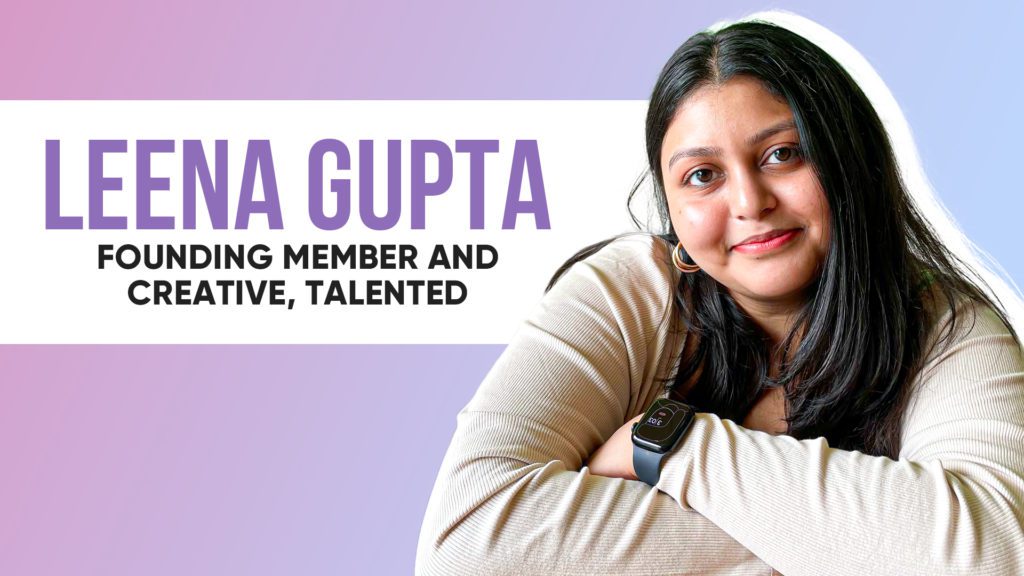
“As with every piece of advertising, the creative process is iterative. We develop our scripts in collaboration with SMEs. Bahujan storyteller Balram Vishwakarma, gender expert Papori Bora, and ethnographer Garvi Dhar are some of the folks who have helped us tell stories with the sensitivity they deserve,” explained Leena.
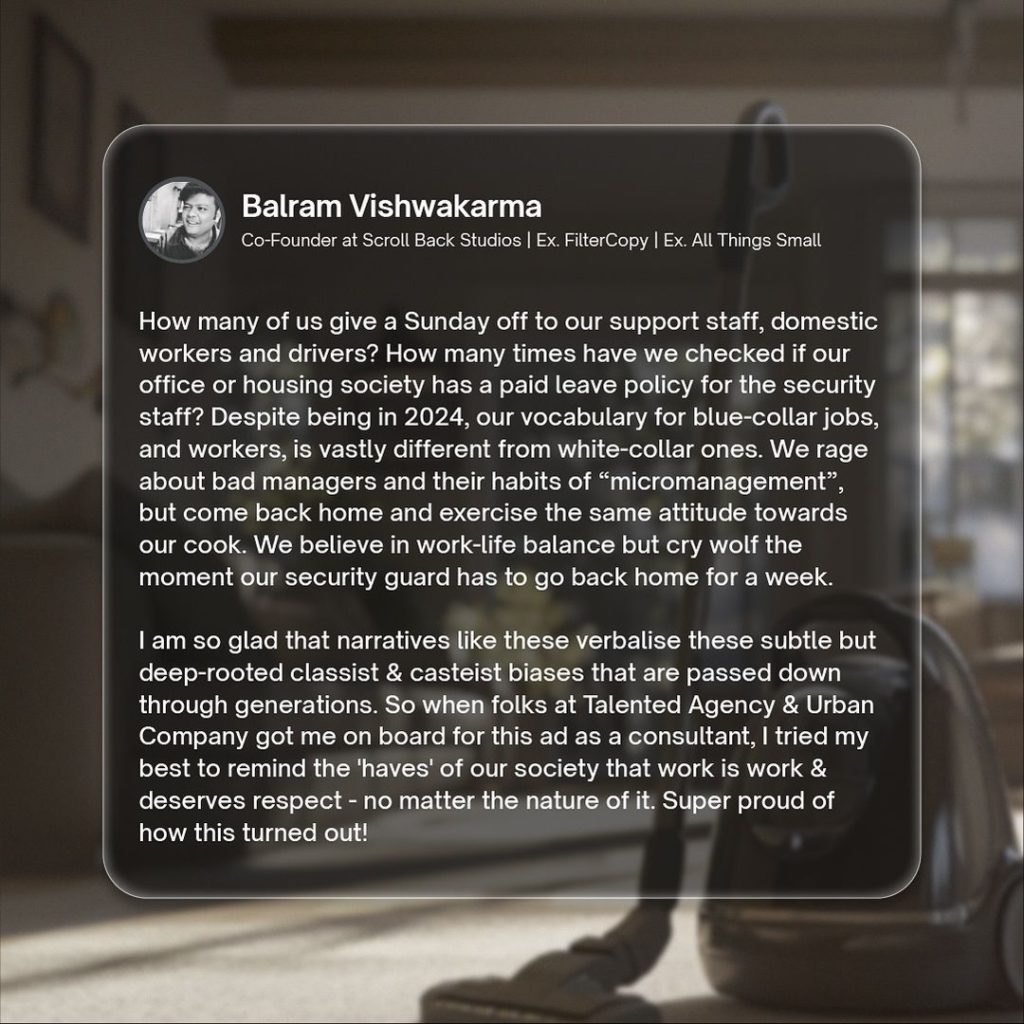
It Takes An Army
Armed with an authentic narrative, they team up with director Kopal Nathani of Superfly Films, to bring their stories alive on the celluloid. “The screenplay gets tighter, dialogues get sharpened, the right cast is found, make-believe sets are built- and what started as a UC Pro discussing their day-to-day, becomes a film seen and loved by millions,” shared Gupta.
SN: Good writing is crucial for a campaign like this. How close was the final script to the first draft? How did you decide which line to keep and which to discard?
Leena Gupta: For our films, the hero is neither a product, nor a visual spectacle, nor a literal Bollywood hero – it is the storytelling. There is a fine line between writing that influences and writing that makes you cringe. With every draft, there was constant refurbishing – “Does this sound too much? Does this sound too little? Do I want to hear this? How would I feel if someone did this with me?” We never stopped asking ourselves this question until the day of the shoot, with our director Kopal Naithani.
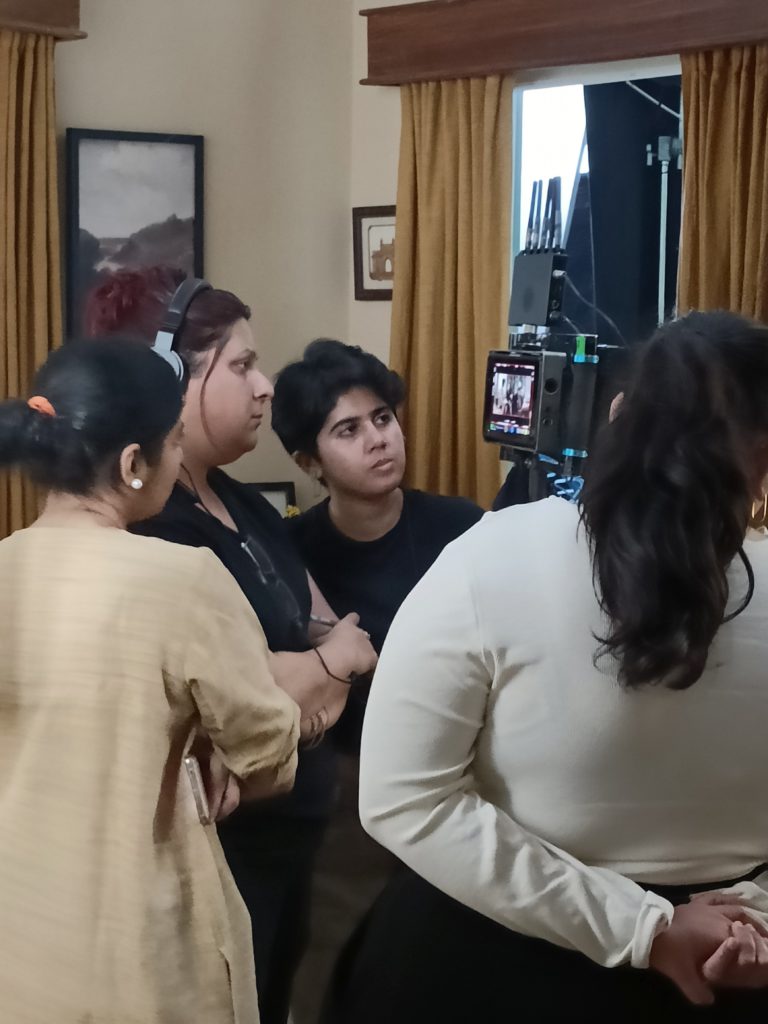
Not just the writers, the actors also improvised their lines on set to create a tone that felt the most natural, resulting in storytelling gold. She says that the best part about writing these films is that the story remains front and centre. “Our wonderful clients at Urban Company have never let us feel the pressure of ‘film length’. In a landscape of constantly decreasing attention spans, and marketers optimising too much for logo appearances, our clients empowered us to prioritise the narrative each time,” said Leena.
An Insight-driven Campaign Over Performance-driven
How does an agency convince a brand like UC to invest in a campaign that won’t directly drive sales but focuses more on demanding respect for the services provided?
The ‘Dignity of Labour’ series is designed to shift public perception, addressing the respect gap between blue-collar and white-collar workers. While the campaign doesn’t focus on driving direct sales for specific categories, it aligns with Urban Company’s long-term strategy of ensuring that their service professionals are empowered to do their life’s best work, with their heads held high.
Talking about this insight-driven approach Leena said, “[It] helps build a deeper, more meaningful connection with both customers and service professionals, ensuring that there is a consistent uptick in consumer perception, resulting in long-term brand loyalty.“
The Impact Of The Ads
The ‘Chhota-Verse’ ads were quite impressionable. But did they create the intended impact? Did they result in any change in perception amongst white-collar users towards the blue-collar service providers? “Yes,” says Kartik Ahuja. And it shows in the thousands of positive comments on the brand’s social media platforms as well. These 3-minute films moved netizens; probably more than a 3-hour movie.
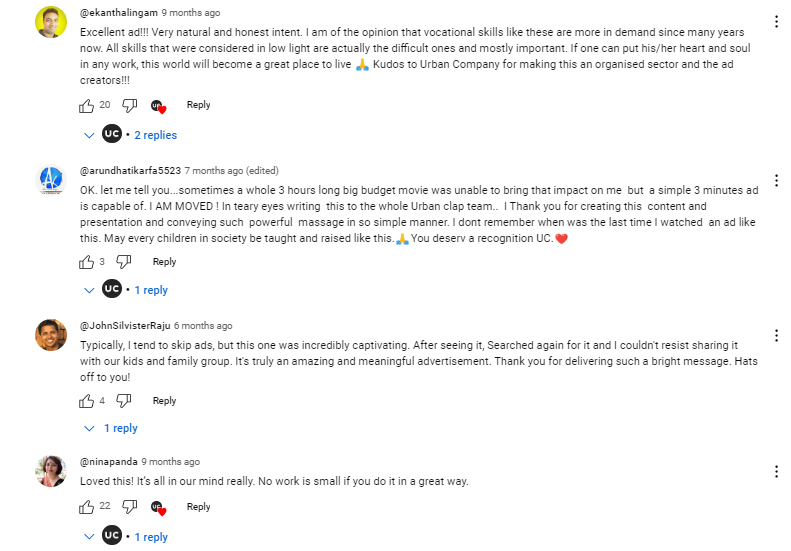
While Urban Company’s long-term goal is to shift consumer perception over time, they are closely tracking organic conversations around each film. “A key success metric for the team is, ‘Did our film open up discourse online to bring about real-world change in bridging the respect gap between blue and white-collar workers?’ And seeing positive change unfold in front of us with each film, even if it’s at an individual level, has been quite heartening. It gives us the confidence to continue investing in this work-stream,” shared Kartik
These are ads you wouldn’t ever skip. The entire team of Urban Company and Talented.Agency, take a bow! This is stellar work. And most importantly, a salute to the UC Professionals and all such service providers for working so dedicatedly. These are not ‘people to be wary of‘ but ‘people to be equally respected.’ Thank you for all that you do!


